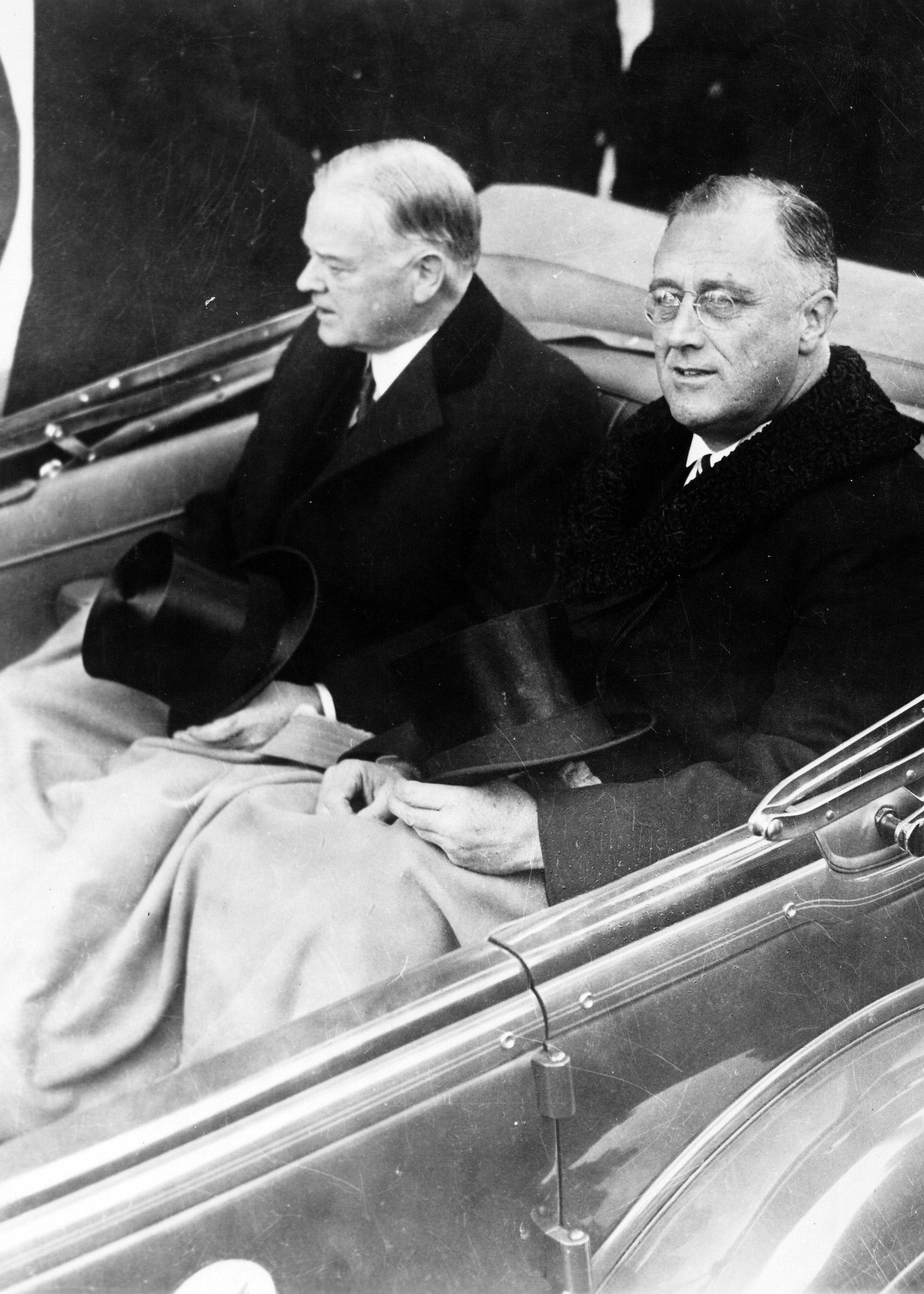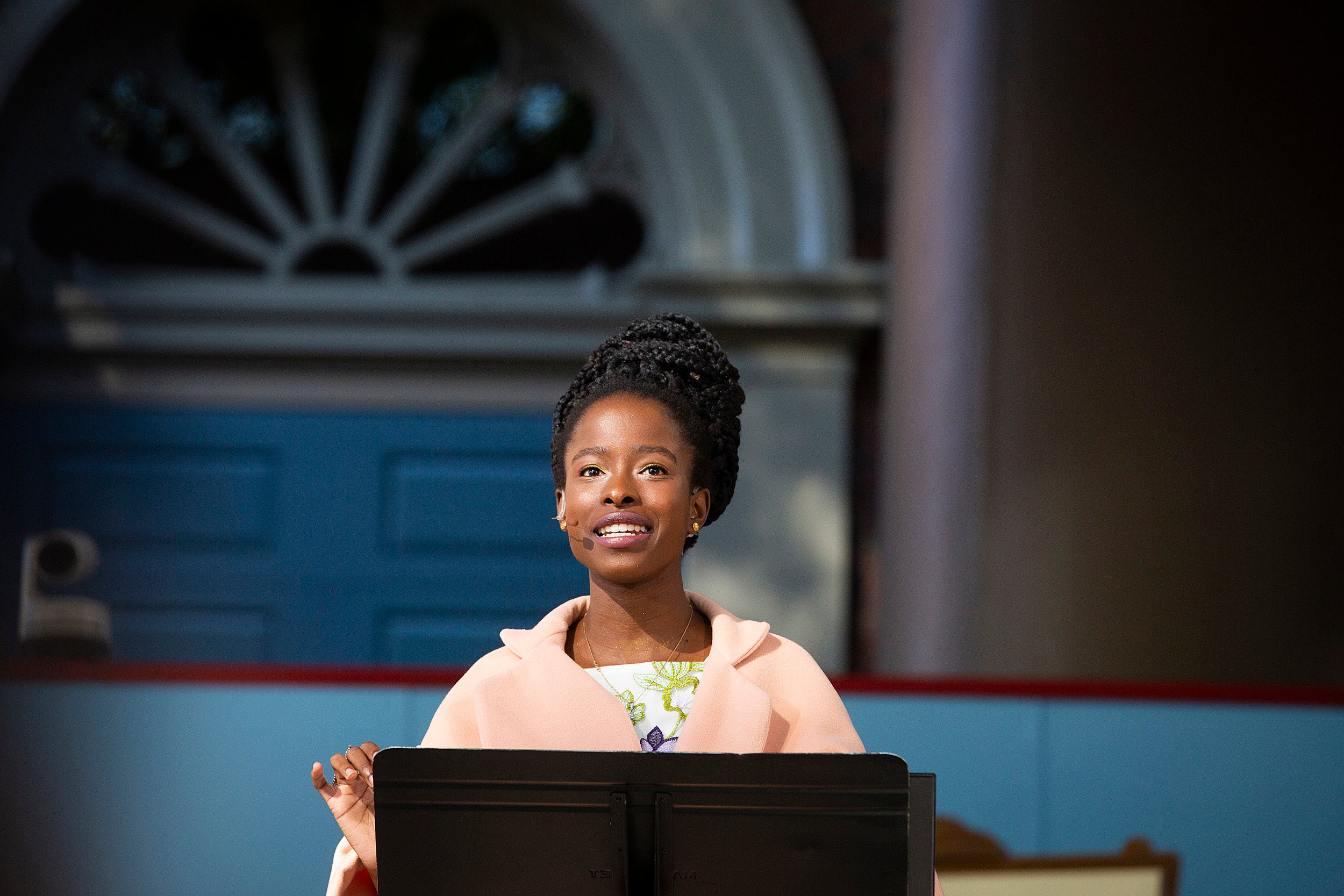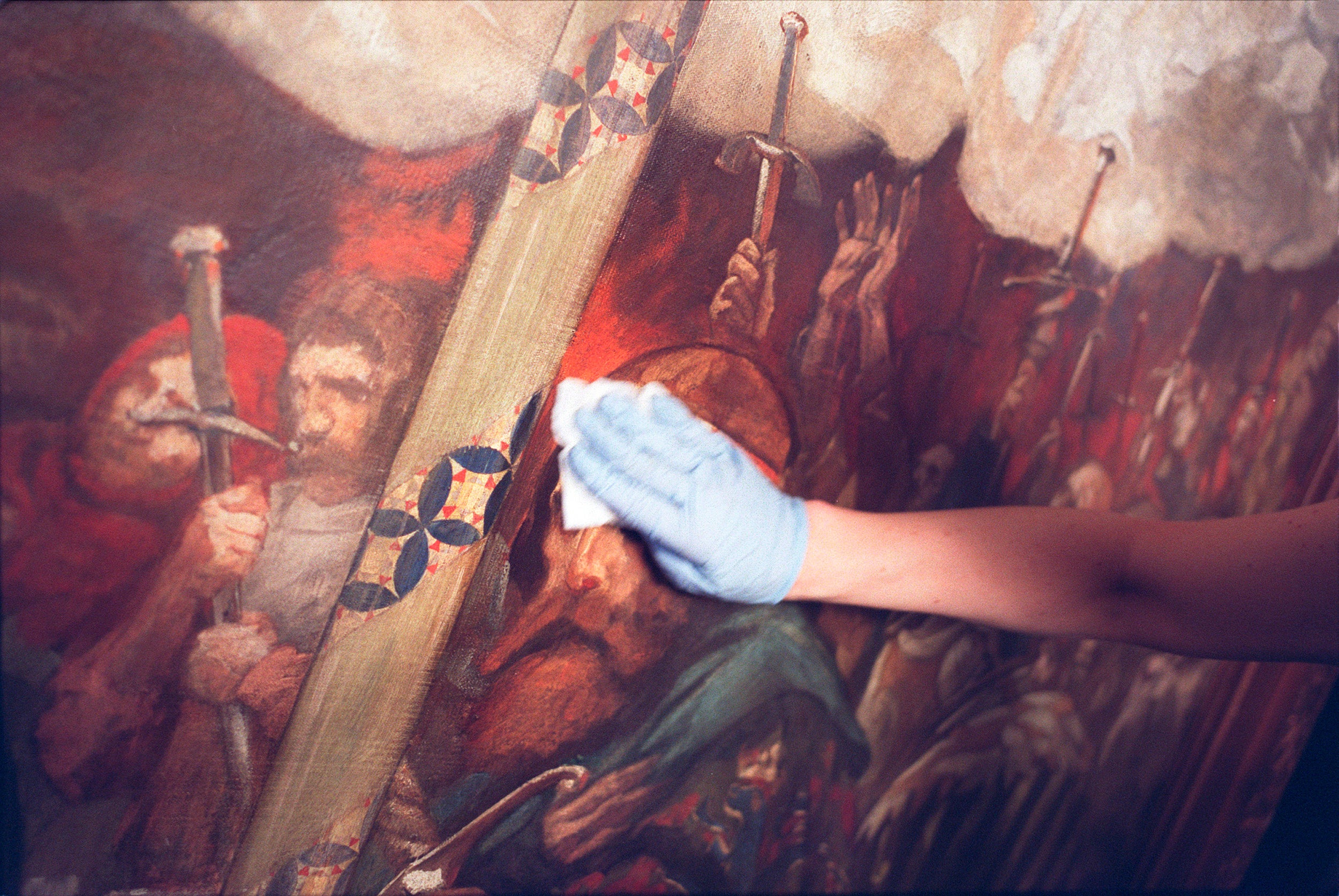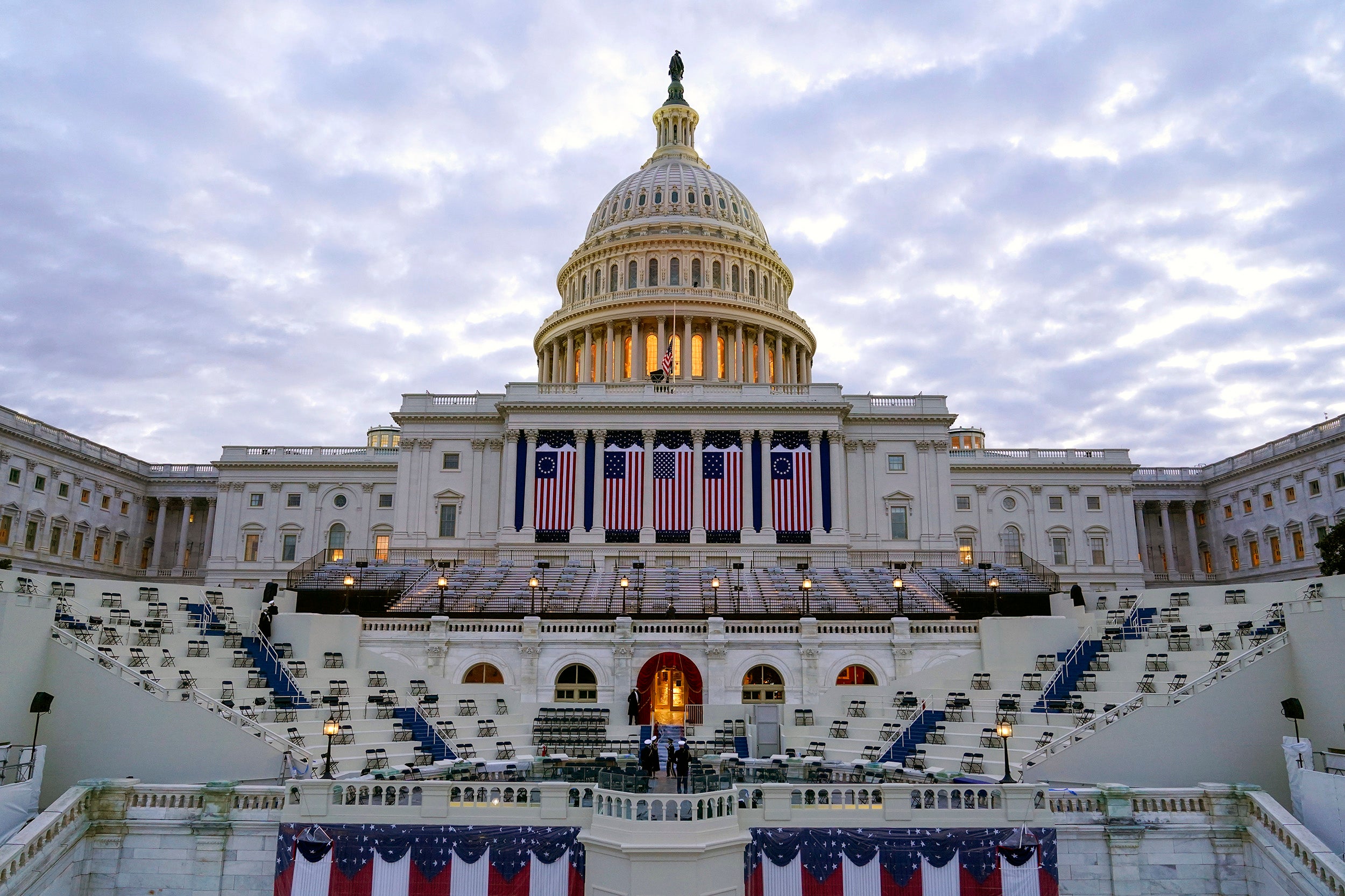
Preparations take place before a rehearsal for President-elect Joe Biden’s presidential inauguration.
AP Photo/Patrick Semansky
Reaffirming inauguration rituals after Capitol assault
How the symbolic aspects of a cornerstone of American democracy evolved
The inauguration today — our nation’s 59th — is about more than the peaceful transfer of power from one administration to the next. While it certainly achieves that, the ceremony at noon, which will be held on the west side of the Capitol, has also come to symbolize the significance of the office and signal the kind of administration the incoming president intends to establish.
But this one will be markedly different from those of more recent decades. Absent will be the celebratory crowds and glittering social events, owing to COVID-19 concerns. And thousands of additional members of law enforcement and the National Guard will be present to provide security after last week’s smashing of decorum and symbols by a rioting mob of Trump supporters inside the Capitol.
The central goal, however, remains unchanged: the reaffirmation of a cornerstone of democracy. Many of the rituals have accrued over time. Very little of the pomp and circumstance we have come to expect is actually necessitated by the Constitution. “The Constitution is quite spare in its vision of what should take place,” explains David Gergen, LL.B. ’67, professor of public service at Harvard Kennedy School and a onetime top adviser to four different presidents, Republican and Democrat. “It simply says there should be a taking of the oath.”
“There weren’t always public outdoor ceremonies,” said Jon C. Rogowski, associate professor of government and the author, with Andrew Reeves, of the upcoming, “No Blank Check: Public Opinion and Presidential Power.” Although George Washington’s inauguration in 1789 reportedly drew approximately 10,000 people, the public ceremony at the Capitol didn’t start until 1817, while other practices have evolved since.
David Gergen was a top adviser to four different presidents.
Stephanie Mitchell/Harvard file photo
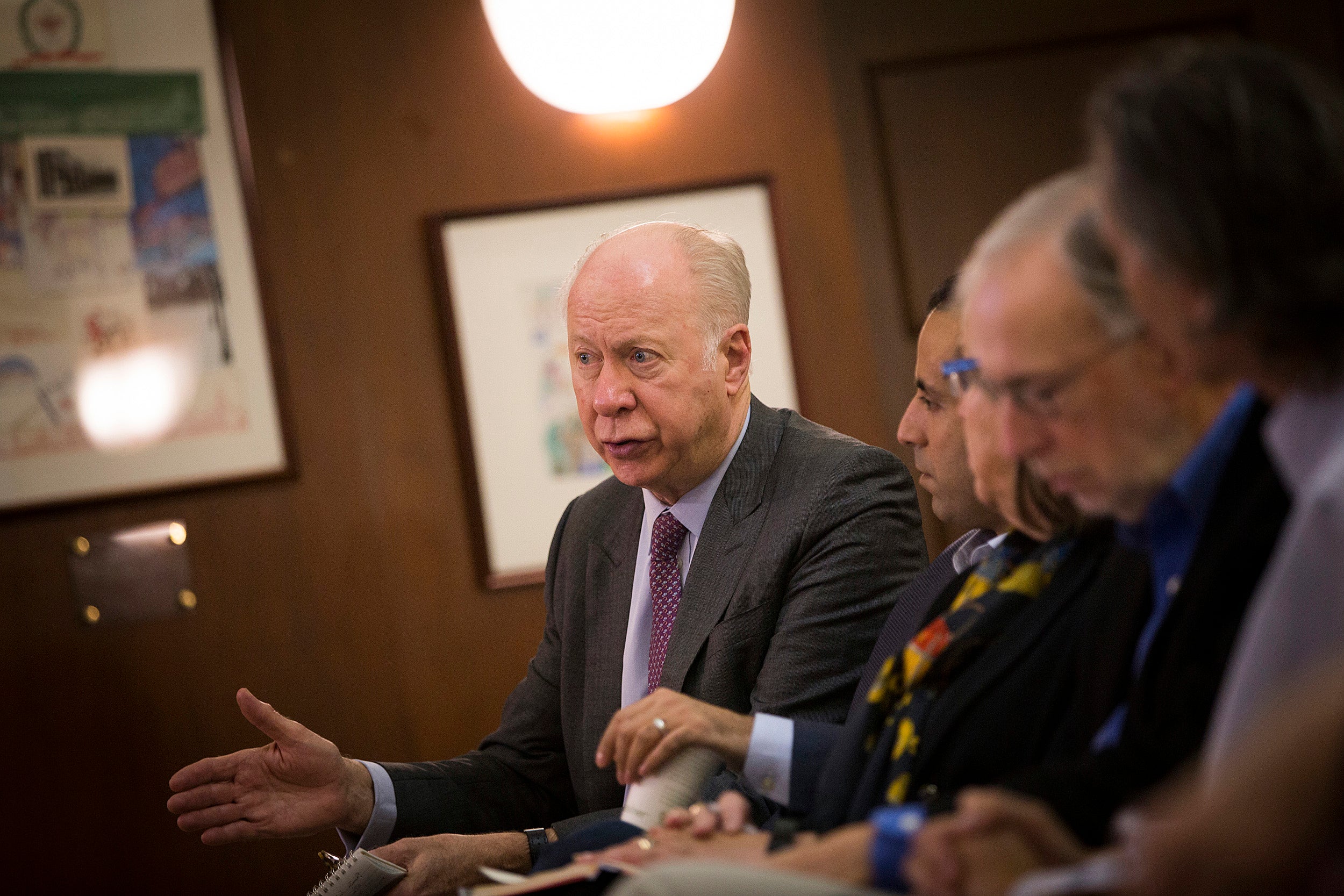
Many of these will be passed over this year, such as the president and president-elect traveling together to the inauguration, a tradition established in 1837. President Trump plans to skip the ceremony, becoming the first commander-in-chief to do so since Andrew Johnson declined to attend the installation of President Ulysses S. Grant. In addition, any parade — a feature since 1873 — will be substantially different under the current heavy security and with COVID protocols in place.
“The reason our inaugurations have grown over time is simply that that presidency is a flashpoint for American politics,” said Rogowski. “The American people want to see themselves in the ceremony.”
True to this point, the rituals that have evolved are laden with symbolism. Members of Congress are invited, for example, while the chief justice of the Supreme Court typically administers the oath.
“The fact that an inauguration is bringing together three branches of government from members of both parties is really important,” explained Rogowski. “It encodes what an inauguration means for the American public and also to the world more broadly.”
Jon Rogowski.
Jon Chase/Harvard Staff Photographer

Aspects of the ceremony are also personal. Taking the oath on the west side of the Capitol is relatively new, Gergen explained. In 1981, President-elect Ronald Reagan moved it from the east side “because he wanted to look out toward California,” Gergen recalled. Practically, “you get a far bigger crowd over there,” as well, although with the National Mall closed, the in-person audience will not be an issue this year.
Having it outdoors, on the site of the last eight inaugurations (Reagan’s second inauguration was moved indoors because of record cold), is also deeply symbolic. Despite security concerns, the incoming president has resisted calls to hold the ceremony indoors. “I think it would have been a surrender,” noted Gergen. “I’m sure he didn’t want to do it because he wants to show that he’s not going to be intimidated.”
The resumption of an inaugural poetry reading, a tradition skipped by Trump, sends a different signal. It reaches back to the administrations of previous Democratic presidents John F. Kennedy, Bill Clinton, and Barack Obama. And then there is the selection of poet Amanda Gorman ’20, the first youth poet laureate and a woman of color. “She’s terrific,” Gergen said. But he also noted that, while past poets have included more established figures such as Robert Frost, Maya Angelou, and Elizabeth Alexander, Biden chose a young poet — Gorman is 22 —with a relatively low profile. “He’s not going for royalty. He’s for the middle class. His authenticity is very important to him.”
The family Bible that Biden has chosen carries its own history. Dating back to 1893, it also served for his oaths of office as a senator and vice president. “The long family ties relate to the general message that this is not going to be someone who is unmoored from the values and principles that he’s conducted his private and public business with for decades,” said Rogowski.
The centerpiece of the ceremony — the inaugural speech, stating the administration’s themes — is already being telegraphed. “We’re already seeing something unfold that we haven’t seen for a long time,” said Gergen. “An echo of FDR taking over in 1933. You will recall that that speech — ‘We have nothing to fear but fear itself’ — triggered 100 days of major accomplishments. Major legislative bills went through, and they just kept rolling.
“Biden has picked up on that. He’s promising he’s going to have a hundred million vaccinations at the end of his first 100 days. He’s already made two big announcements about launching major programs on the economy and COVID. He’s giving speeches as a drum roll: Here are the things I’m doing.”
Ultimately, said Gergen, “The inauguration is an expression of joy in the Constitution and our democracy.” This year, he said, the ritual will be most welcomed. “This inauguration, it strikes me, will be far less about joy than about relief and reflection,” he said.



